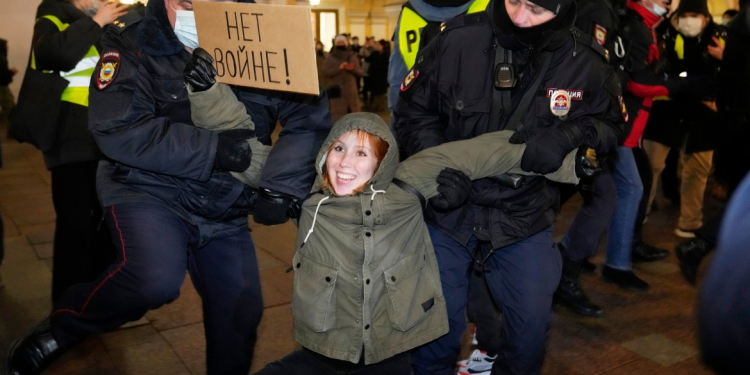Perhaps, then, it ought not to be surprising that Russia’s war against Ukraine is reverberating in Switzerland, a country that has been neutral for over 200 years, and whose neutrality is constitutionally enshrined. Even during World War I and World War II, Switzerland maintained its neutrality. During the Cold War, Geneva’s neutral status led it to host summits between the West and the Soviet Union in both 1955 and 1985.
Yet, since February 24, Putin’s barbarism in Ukraine has led Switzerland to stretch its neutrality to seek greater alignment with the transatlantic community in responding to Russia.
While support for joining NATO has risen among the Swiss population, it remains a minority view. The report is not expected to advocate for Swiss membership, and Amherd has stated that joining the alliance is “not an option.”
Still, it seems likely that the report will recommend some moves to bring Switzerland closer to NATO such as by improving interoperability through exercises or participating in additional NATO-accredited Centres of Excellence.
Even prior to this year’s invasion of Ukraine, Switzerland announced major defense procurements, including thirty-six F-35 fighter jets and five patriot missile batteries—capabilities already in the arsenals of many NATO member states.
Perhaps there will be an opportunity down the road for Switzerland to become an “enhanced opportunity partner” of NATO. The alliance introduced the category following the 2014 Wales Summit, deepening cooperation with non-NATO partner countries. Two of the five current enhanced opportunity partners, Finland and Sweden, are likely to join NATO later this year, leaving Australia, Georgia, and Jordan as the remaining three.
While Switzerland’s defense report may recommend some historic shifts in the neutral nation’s defense cooperation policies, it is important to moderate expectations. Old habits die hard, and Swiss neutrality still remains alive and well. For instance, Geneva continues to block the re-export of Swiss-made munitions and armored vehicles to Ukraine.
Switzerland finds itself caught between its historic neutrality and the reality of the new security order ushered in by Russia’s war against Ukraine. The Swiss know there can be no going back to the pre-February 24 status quo. While Russia’s invasion and brutality have sparked some policy changes, as well as the ongoing consideration of expanding defense cooperation, others, such as controls on defense re-exports, remain firmly in place.
Russia’s war has reverberated across Europe, echoing even in the Cantons of Switzerland. Where those reverberations ultimately lead remains an unfolding question that the United States and its allies—as well as Russia—will surely watch closely.
Daniel Kochis is a senior policy analyst of European affairs in The Heritage Foundation’s Margaret Thatcher Center for Freedom.

































Discussion about this post